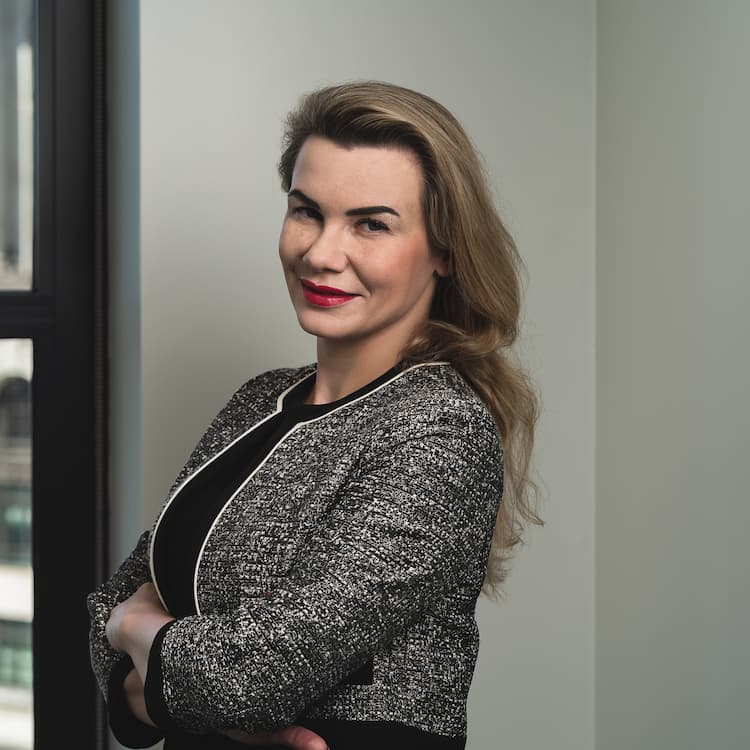Compliance
AML Enforcement In The Art World

The author of this article explains the potentially chilling impact of additional sanctions reporting obligations set to take effect.
Dr Angelika Hellweger, legal director at Rahman Ravelli, explores the increasing pressure on the UK art market due to intensified anti-money laundering enforcement and expanded sanctions obligations. London’s art market, the third largest globally, is navigating a complex compliance landscape that could impact its future. Hellweger examines how these changes, including the requirement for art dealers to register with HMRC and comply with strict identity verification rules, might deter buyers and even push smaller dealers out of the UK market.
With additional sanctions and reporting obligations set to take effect, the author highlights the potential chilling effect on a market already concerned about fines and penalties. This piece provides a timely and detailed analysis of the intersection between art, compliance, and legal risk.
The editors of this news service are pleased to share these insights on what is an important topic; the usual editorial disclaimers apply. We hope this article motivates readers to respond. To do so, email tom.burroughes@wealthbriefing.com and amanda.cheesley@clearviewpublishing.com.
London’s art market is the third largest in the world, accounting for 17 per cent of global sales and worth $1.5 billion last year. Yet this market is under pressure from an intensified crackdown on money laundering as well as new sanctions reporting obligations.
When it comes to money laundering, the authorities now seem more determined to enforce the rules – a determination which is confirmed by an increase in the number of fines issued. Those who are involved in the art market need to register with HM Revenue and Customs (HMRC) and follow rules if they sell pieces that are worth €10,000 ($10,404) or more or run a warehouse that stores art with a value above that figure. Failing to register can lead to penalties.
Meanwhile, existing sanctions legislation has been amended to include what the Office of Financial Sanctions Implementation (OFSI) calls high-value dealers and art market participants on the list of firms that are subject to extended sanctions reporting obligations.
These two developments have placed compliance responsibilities on those in the art market sector, meaning that they face the risk of fines or even imprisonment if they fall short when it comes to meeting those obligations. Yet there is also the danger that these changes could adversely affect the booming UK art market. The procedures will seem burdensome to the art market professionals and unnecessarily prying to would-be customers.
Four years ago, the UK Treasury assessed the art market as a high risk for money laundering. The following year, a post-Brexit amendment to European Union financial crime rules applying to the UK art market was introduced. It means that sellers now have an obligation to know who their buyers are and to ask for proof of identity.
This identity requirement aims to prevent the often confidential nature of the art market being abused by those looking to launder money. Yet the United States’ AML rules concerning the art market are significantly less stringent, even though New York is the largest art market in the world. The same applies to other art hotspots such as Hong Kong, Singapore and Dubai – where there is not the increased enforcement that the UK art market is currently seeing.
More fines were issued from spring to autumn 2023 to art market participants for not registering with HMRC than there were in the previous two years. Many art market participants now fear that potential buyers may start to overlook the UK in favour of countries where the sales process is less intrusive, and the authorities are less aggressive.
Besides that, OFSI’s latest regulations – which come into effect next May – mean that those operating in the art world could face enforcement action for a failure to report suspicions of sanctions evasion. Such failure carries a potential penalty of a fine of up to £1 million ($1.25 million) or 50 per cent of the total value of the sanctions breach, whichever is higher, and up to seven years in prison. It would be no surprise if many art dealers, particularly the smaller ones, took their business out of the UK.
The prospects of having to introduce a comprehensive sanctions compliance operation – and the possible penalties if it fails – in addition to the anti-money laundering procedures could lead many art dealers to see little reason to continue plying their wares in the UK. For many, seeking specialist legal advice in this field may be an option. But this would mean extra cost, however useful it proves to be.
It remains to be seen whether OFSI takes a strong approach to the enforcement of its new rules. There is also the possibility that HMRC’s new-found enthusiasm for enforcement may not last or may be scaled down to a hunt for easy and obvious pickings in the art world.
Yet both factors are currently cause for concern in the UK’s art market.
The author
Angelika Hellweger is a specialist in international,
high-level economic crime investigations and large-scale
commercial disputes. As a multilingual lawyer she represents
corporates and conglomerates across Europe, the Middle East,
Africa and the US. Her comprehensive experience and thorough
understanding of all aspects of white-collar crime have led to
her successfully representing corporations in many notable
multijurisdictional investigations and in some of the most
complex commercial litigation.